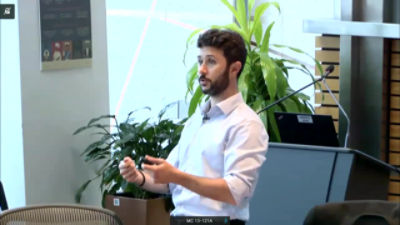Parents around the world hope for a better life for their children. Yet the opportunities available to the next generation vary greatly across countries, between groups within countries, and over time. In developing countries, tracking the evolution of intergenerational mobility has been a particular challenge due to data constraints: matched parent-child income records are often not available and levels of educational achievement are only coarsely measured.
In this Policy Research Talk, World Bank economist Sam Asher will present a new method for measuring intergenerational mobility that can be applied in countries where data are limited. Drawing on , he will illustrate how this new method can produce policy-relevant measures across groups and space, as well as over time. For IndiaˇŻs population as a whole, intergenerational mobility has remained constant since liberalization, but cross-group changes have been substantial. Rising mobility among historically marginalized Scheduled Castes has been almost exactly offset by declining intergenerational mobility among Muslims, a comparably sized group that has few constitutional protections.
Asher will also share the first high resolution geographic measures of intergenerational mobility across India and even within cities. On average, children are most successful at exiting the bottom of the distribution in places that are southern, urban, or have higher average education levels. The talk will conclude with a discussion of future research on the causal determinants of the observed variation in mobility, from affirmative action programs to inequalities in public good provision.





